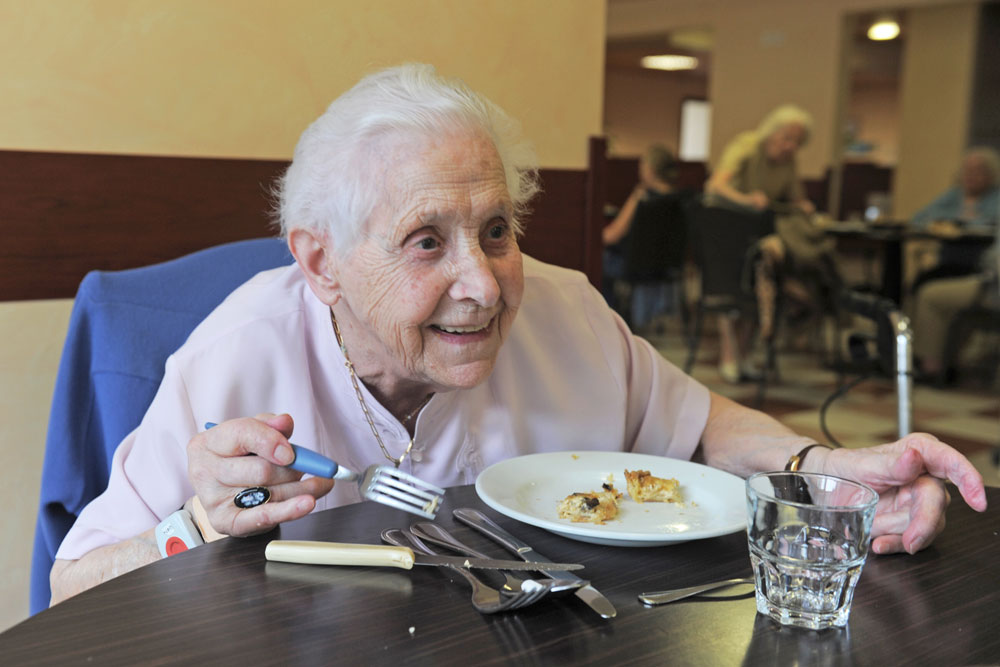Do the ordering routines work for the business?
This digital article based on Swedish conditions is computer translated. Hopefully we can inspire people from other countries.
A nursing home needs many goods and services to function. Good routines save both money and the environment. It happens that products are thrown away when the best-before date has passed. Packaging materials and food are not infrequently discarded. Medicines also sometimes have to be disposed of. Good procedures for purchasing reduce the risk of wasting resources. Poorly functioning ordering routines create unnecessary extra work for employees and risk the quality of care at the nursing home.
 Foto: Mostphotos
Foto: MostphotosSafe supply of goods - having what is needed without having to dispose of it.
Many times when I have been to nursing homes, I can see that there have been record orders for certain products. One can easily see that home-ordered material exceeds what can be consumed before the shelf life expires. At the same time, Covid-19 was a reminder that certain protective equipment must always be in stock or accessible at short notice. Mouth guards, visors, protective clothing that covers the arms are examples.
Within the industry, "just-in-time" is applied for the supply of goods. They do not want to be in large warehouses as it costs both in terms of space and as it ties up capital for the business. Having suppliers you can trust is very valuable.
On one occasion at a nursing home, the staff did not manage to get tube feeding home and one of the residents risked going without. The manager made three calls and received delivery from three different suppliers the next day. Often it's just a matter of commitment to get hold of what is needed. The lead time should not be so short that the business needs goods the next day, but the example shows that it is possible.
Order routines for the nursing home - An essential part of good care
Effective and well-organized ordering routines for nursing homes are essential to offer good quality care for the elderly. The routines play a decisive role in ensuring that the needs and wishes of the elderly are met and that resources are used effectively.
The right quantities in the stores:
One of the main functions of ordering routines is that the nursing home always has sufficient but not too large stocks of necessary products. This includes medicines, bandages, hygiene products, foodstuffs and other things necessary to provide good care. By having well-planned ordering routines, the nursing home can avoid waste of resources and unnecessary costs. At the same time, residents can be offered the care they are entitled to.
Individually adapted meals
For many older people, food is an important part of their daily routine and well-being. By having efficient ordering routines for groceries and special diets, the nursing home can offer customized meals that are both healthy and appealing. This may include special products for the elderly with allergies or special diets as a result of religion or lifestyle choices such as a vegetarian diet.
Medicine management
For older people who need medicines, it is crucial that the ordering routines work. There also needs to be routines to handle situations when medicines are not available, so that the resident still receives the best possible medicine treatment.
Self control
The supply of goods needs to be regularly followed up. This is so that the business does not accidentally use products whose use-by date has passed and so that goods are not ordered home unnecessarily. Residents' needs also change over time when the state of health changes or when new residents move in.
Many different kinds of products
One area where there is too much equipment is dressing materials, catheters and more. It happens that the accommodation has to be discarded because the best before date has expired. Businesses with clear instructions for what material should be in stock and at what time it should be ordered save both money and the environment. Soap, hand sanitizer, gloves, paper towels, toilet paper, household paper, cleaning agents, dishwashing liquid and similar products are another group of goods that need to be bought home. The storage of both chemicals and dressing materials is important. Repositioning material must be stored dry and dust-free. Some chemicals should definitely be kept locked up. Which ones you will find out if you read the contents list.
A risk factor is the supply of medicines. Drug deliveries to nursing homes often contain drugs that are prone to theft. Having safe routines where the medicines are locked in the medicine room is of great importance.
Food is another area where large purchases are made. Many foods have a limited shelf life and it is important not to order home more than what is needed. It is also about choosing which foods to offer. The accommodation may have a requirement to buy organic products for a certain percentage of purchases. Many times there are also requests from the residents for certain products.
The handling of food is a vulnerable chain. As for food kept warm, it should not be kept warm for longer than an hour. This applies from the time it is delivered from the kitchen until it is served. When it comes to chilled food, it must be kept at refrigerator temperature throughout transport and in storage at the nursing home until it is warmed up. It is also required that the business has full traceability when it comes to storage, for that reason someone should get food poisoning.
Incontinence protection can also be difficult to order in sufficient quantities. If there are large quantities of incorrect incontinence pads, the supplies can become crowded.
Working with orders
Elderly homes often have people who are responsible for ordering different types of goods. It can be good to gather all of these into a purchasing council to discuss what is reasonable forethought regarding different product types. They can then also give each other tips and ideas about how they work with orders. In this way, it is possible to have both a more secure supply of goods and a reduced risk of having huge stocks of certain product types. It may also be possible to collaborate with other nursing homes to reduce the amount when suppliers want to deliver excessively large packages.
Many times it can be good to go through which suppliers you have and what they cost. There may be companies that invoice for goods and services that the business does not really need. It may be possible to buy products cheaper elsewhere.
Environmental aspects of the supply of goods
More and more people and businesses sort and recycle waste. It's not entirely straightforward in a nursing home, but many try and still find ways to recycle a lot of packaging and other things. One area that is special in a nursing home is the handling of hazardous waste. There needs to be safe routines around the handling of discarded medicines and when it comes to sharps and sharps waste.
Sustainable purchases
One of the most tangible ways in which ordering routines can affect the environment is through the purchase and use of products and materials. By prioritizing environmentally friendly alternatives, the nursing home can reduce its climate impact and minimize the use of non-renewable resources. Examples include choosing recyclable packaging, organic food and energy-efficient appliances.
Reduce waste and wastage
Efficient ordering procedures can help minimize waste and wastage. By ordering the right amount of products and supplies, the nursing home can avoid excess materials that would otherwise end up in the garbage. Caring for what you have is another aspect of reducing unnecessary consumption. By going through what the nursing home buys in and discards, you can find examples of unnecessary environmental impact.
Energy and water savings
The nursing home also consumes energy and water. Here there may be opportunities to reduce the environmental impact of the nursing home.
Education and Awareness
An important part of incorporating environmental aspects into the ordering routines is to train the staff and increase awareness of environmental issues. By understanding the connection between ordering decisions and environmental impact, staff can actively contribute to more sustainable elderly care. By setting clear environmental goals that are followed up regularly, everyone in the business can strive in the same direction.
Reflection questions - supply of goods
Care staff:
- Do the purchasing routines work well?
- Is there anything you need at home?
- Are there stocks of products that are not used very often?
Manager, nurse, occupational therapist and physiotherapist:
- Do you know which chemicals are in the business?
- Is there access to the products in storage?
- Are there suppliers who cost unnecessarily much?
Resident and next of kin:
- Are you satisfied with the goods and services that the business buys in?
Erland Olsson
Head nurse
Sofrosyne
Quality in elderly care
Aktuellt i media
- 2024-04-22 04:00 01 Kvalitet
- 2024-04-18 04:00 10 Aktivitet o funktionsbevarande arbetssätt
-
2024-04-15 04:00
09 Mat och måltid
Food and fall prevention. How the nursing home ensures a safe and nutritious food handling.
info Foto: Mostphotos
Foto: Mostphotos - 2024-04-11 04:00 05 Planering
- 2024-04-08 04:00 10 Aktivitet o funktionsbevarande arbetssätt
- 2024-04-04 04:00 11 MTP






